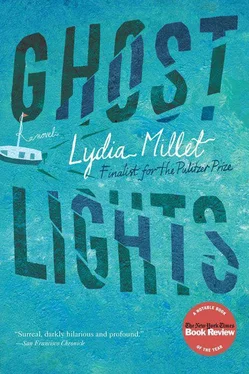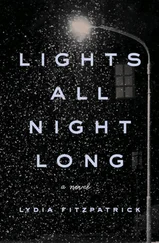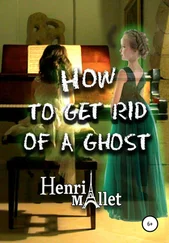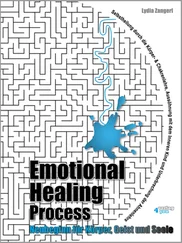Lydia Millet - Ghost Lights
Здесь есть возможность читать онлайн «Lydia Millet - Ghost Lights» весь текст электронной книги совершенно бесплатно (целиком полную версию без сокращений). В некоторых случаях можно слушать аудио, скачать через торрент в формате fb2 и присутствует краткое содержание. Издательство: W. W. Norton & Company, Жанр: Современная проза, на английском языке. Описание произведения, (предисловие) а так же отзывы посетителей доступны на портале библиотеки ЛибКат.
- Название:Ghost Lights
- Автор:
- Издательство:W. W. Norton & Company
- Жанр:
- Год:неизвестен
- ISBN:нет данных
- Рейтинг книги:5 / 5. Голосов: 1
-
Избранное:Добавить в избранное
- Отзывы:
-
Ваша оценка:
- 100
- 1
- 2
- 3
- 4
- 5
Ghost Lights: краткое содержание, описание и аннотация
Предлагаем к чтению аннотацию, описание, краткое содержание или предисловие (зависит от того, что написал сам автор книги «Ghost Lights»). Если вы не нашли необходимую информацию о книге — напишите в комментариях, мы постараемся отыскать её.
How the Dead Dream
Ghost Lights
Ghost Lights
Ghost Lights — читать онлайн бесплатно полную книгу (весь текст) целиком
Ниже представлен текст книги, разбитый по страницам. Система сохранения места последней прочитанной страницы, позволяет с удобством читать онлайн бесплатно книгу «Ghost Lights», без необходимости каждый раз заново искать на чём Вы остановились. Поставьте закладку, и сможете в любой момент перейти на страницу, на которой закончили чтение.
Интервал:
Закладка:
Casey, on the other hand, never did this. She would go so far as to rudely announce that she didn’t do small talk. And because of the chair, would be his own guess, she got away with this without blame or comment.
Twice the car stopped unexpectedly at a gas station and the driver got out, then loitered talking to other loiterers with no apparent purpose. Meanwhile Hal waited in the car, impatient and unmoving, full of rising resentment, until ten minutes later the driver got in again without bothering to proffer an explanation. A Caribbean cultural practice, possibly. Possibly Hal would be rewarded one day for broadening his cultural horizons.
It was three or four hours at least to the resort where Stern had been staying — first on a two-lane highway that meandered up and down hills with a view of the sea, then on a long red-dirt road down a narrow peninsula. Most people flew directly to one of the resorts on the coast and landed on a private airstrip, skipping the inland road where barren fields and dirty urchins with stick-legs would dampen the holiday mood.
Whenever settlement hove into view it was shacks with graffiti on them, snarled wire and molding, flimsy pieces of particleboard in place of fences and walls. There were fields of dirt where nothing grew but bald tires and garbage, smoke rising from ashcan fires, and no cars or trees or vegetation outside the hovels either, only bare expanses of soil with an occasional weed. Sometimes a woman or child or dog could be seen wandering through, emaciated; one old woman he saw through a fence with a ragged, open sore on her calf. He caught a glimpse of some skinny kids playing soccer outside what was probably a schoolhouse, which cheered him a bit until he also noticed, beside the stretch of baked earth where the boys were playing, a corrugated-metal rooftop. Underneath it two other boys were carving up a dead animal. He could not tell what it was.
Here and there a bedraggled brown palm tree struggled to look exotic. Forests must have been felled, for sometimes he caught sight of a clump of shiny-leafed bushes and trees in brief straggles of green against the backdrop of dirt and rust, with stumps around them that looked like they’d been hacked at with machetes. Once he saw a column of smoke on a low hill in the distance.
“When will we get to Placencia?” he asked the driver.
“Not too long, not too long,” said the driver unhelpfully.
The peninsula had been hit hard by the storm. There were still power lines down, and here and there a telephone pole lay tumbled in wire beside the road. It was strange to him, the poles left where they fell — as though there was no machine here to move them and make the roads safe again, no vigilant authority.
The sky faded into a velvety dusk as he watched it through the window, thinking: I came here to escape my wife. My wife who may not love me after a quarter of a century.
Now he was far away from her, in a strange place. He was almost nonexistent; he was nowhere and known by no one.
• • • • •
It was only the next morning that he got a look at the hotel grounds. Out his window he could see the ocean, a few small boats without sails, and near the dock white-skinned guests sitting atop the glittering water in colorful kayaks. The water, he thought, was gray-blue, not what they led you to expect in commercials for Hawaii or the Bahamas — not the emerald or turquoise transparence of a kidney-shaped pool. The color was less stunning, more familiar. Crews worked in the gardens, making flowerbeds, laying turf and digging. There were many of them, men in straw hats with shovels and wheelbarrows.
He would eat, take a walk. It was safe to admit it, since no one was listening: he was not here to find anyone. Not here to exert himself, but rather here to melt down, settle, coalesce, and rise in a new form. . still he could occupy himself a few hours a day with a search of some kind. That was fine. It would give him something to do.
At his table in the restaurant, which overlooked the pool and beyond it the sea again, he gazed out the window. Children played in the pool, spitting long gouts of water out of their gap-toothed mouths. He watched a little boy bounce on the diving board and could not help seeing the boy’s head split open as it connected with the concrete bottom, spinal trauma and then, as usual, Casey. It was a sign of his partial recovery that he was falling back into his old habits of thought again, the worn ruts of his neural circuitry — back to Casey and her injury instead of Susan.
But then even this flicker of Susan opened up the whole scene again. She and Robert in the bedroom or on the floor of the office; himself, papery and sad in the blurry distance.
So there was no recovery yet, after all.
He should not think too much. As a rule he set too much store by thinking. Or at least, complacent in the knowledge that thought was the most useful tool available to men — and one so often neglected by his fellow Americans — he relied on it to the exclusion of other ways of filtering information. Thought was the act of conscious cognition but there were alternative processes of the mind that could work around or alongside it, processes of slow and growing awareness that did not register until they were complete, or the accretion of vague ideas that suddenly produced a form.
Thinking alone had not given him an answer to Casey’s situation and it would not give him an answer to his and Susan’s either. That was his prediction. He should walk on through his day and let the passing of time mold him; time would go by and he would see what to do. This was a vacation — and after the four long years of aggravation that Stern had given him, all the grating secondhand descriptions of his mini-malls and cookie-cutter subdivisions, it was right that Stern should receive the final bill.
Eggs arrived, with a slice of papaya to remind him of his location. Lest he mistake them for Hackensack eggs or eggs in Topeka, the papaya came along to announce they were tropical eggs, to remind him that congratulations! — he was on a tropical vacation.
He ate the eggs and even the papaya, which had an overly luscious, sweaty taste. He went to a rack and picked out a newspaper, then came back to read and drink his coffee. It was a day-old copy of USA Today . This was not a newspaper he chose to read at home — too many colors on the front page, for starters — but it was nice to let his eyes rest.
Sometimes he glanced out the window, past the pool at the stretch of beach: a few of the ubiquitous palms, a hammock, some beach chairs and umbrellas, flapping a bit in the breeze, a pile of upside-down red and purple kayaks and a man raking sand. This was less opportunity, he thought, than the simple end of something. Pebbles and sand and waves softly lapping. For their vacations, people liked to arrive at the end.
He himself would have chosen something with height, cliffs or mountains — something with grandeur and scale. Sure, the water was mild here, and there had to be a coral reef or two. But he saw mostly a blankness, a place that was less a place than an erosion into nothing. That was what he had seen when he stood on the shore that morning — the flat ocean lapping, the flat sand beneath his feet. Maybe tourists came here because they actually missed flat blankness in their daily lives. The flat blankness was possibly a reminder that there was an end to everything, a reminder they lacked while they were going to work and running errands in their suburbs and cities, where they were constantly required to answer the stimuli. Maybe they yearned to be in a place where there was little to see but a line between water and air.
He went back to the paper and listened to a conversation behind him as he scanned the headlines. He could not see the speakers, a man and a woman, could not turn to look at them without being noticed, but he could tell they were young.
Читать дальшеИнтервал:
Закладка:
Похожие книги на «Ghost Lights»
Представляем Вашему вниманию похожие книги на «Ghost Lights» списком для выбора. Мы отобрали схожую по названию и смыслу литературу в надежде предоставить читателям больше вариантов отыскать новые, интересные, ещё непрочитанные произведения.
Обсуждение, отзывы о книге «Ghost Lights» и просто собственные мнения читателей. Оставьте ваши комментарии, напишите, что Вы думаете о произведении, его смысле или главных героях. Укажите что конкретно понравилось, а что нет, и почему Вы так считаете.












